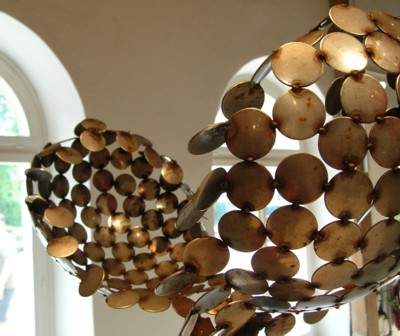Understanding Relations
My wife is accompanying several young people in different situations in their lives. It is done very informally, but from her side with intention and not just undesigned. She said to me this morning: “I had been missing such orientation very much in my youth, perhaps that’s the reason why I’m trying to help this way.”
She told me of a talk she had with the daughter of a friend who is about to start her university studies. Since over a year the girl has a committed relationship. The affair seems to be symbiotic, i.e. both feel a passion for each other and want to live together. However, there are differences in attitudes. My wife asked, what the common ground was, and it was not so clear. The girl said, doing projects together, but didn’t exactly know what kind of projects. From the beginning he wanted from her an “eternal commitment”, she felt constricted by this. She was unsure what in these incertitudes was her part and what was from her partner.
My wife loves illustrating inner processes and relations with little diagrams (see here, here and here): A person who is centred within himself is living in a right angle:
 and integrated
and integrated  . You might encounter situations or emotions without losing your right angle.
. You might encounter situations or emotions without losing your right angle. 
In a relation, you can turn to the other without losing your inner centre. It is like turning your right angle cross towards the other, and the angles meet. The meeting point can be on different levels – on the physical, emotional or mental or even higher levels (represented by the sun).  And you can meet on different planes at the same time. When you have a congruence in something higher – common ideals, attitudes, values – it is more easy to find congruence also in other points, like doing a project together. And also to overcome problems and conflicts in matters of day-to-day life and not to get stuck-up. In a relation harmony isn’t always necessary, but if the fundamentals are sound, it is likely to continue as a good relation, where the partners aren’t bound to each other by conflicts.
And you can meet on different planes at the same time. When you have a congruence in something higher – common ideals, attitudes, values – it is more easy to find congruence also in other points, like doing a project together. And also to overcome problems and conflicts in matters of day-to-day life and not to get stuck-up. In a relation harmony isn’t always necessary, but if the fundamentals are sound, it is likely to continue as a good relation, where the partners aren’t bound to each other by conflicts.
My wife mentioned: “Some couples just seem to have as a common project raising the children, and when the children are grown up, they separate again.” She asked the student about her higher meeting points with her partner, and the young woman wasn’t sure about them. She wasn’t even sure about her own purpose in life, nor about her partner’s. She felt, she had to ponder on what really is the common denominator in her relation. She surely will find out.

This blog-post has been translated into Spanish, together with some other posts of this series.


